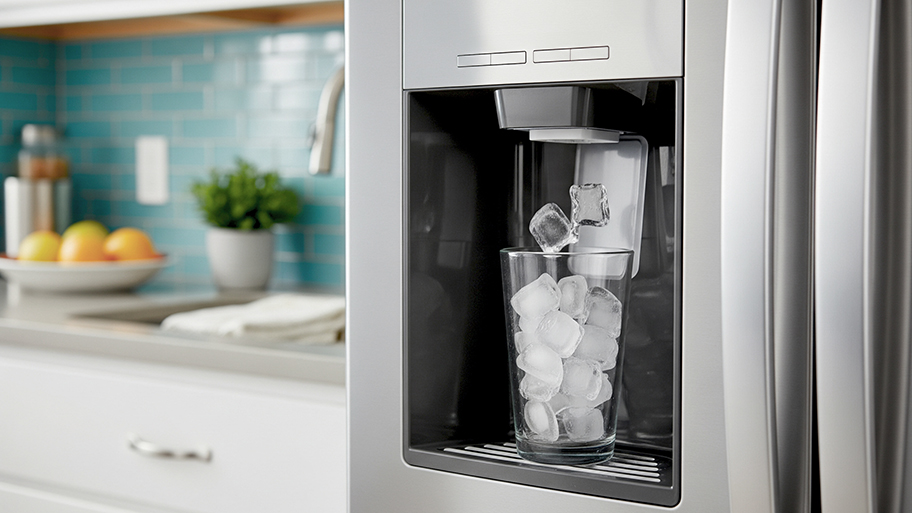
Discover the average ice maker repair cost, key price factors, and tips to save. Learn how to budget for your ice maker repair and when to repair or replace.
Take a load off by learning more about your machine’s lifespan


Your washing machine works hard for you and your family, so you might find yourself wondering, “How long do washing machines last?” It’s essential to know your appliances’ lifespan so you can be on the lookout for telltale signs of them slowing down. Check out how long washing machines last and how to extend the life of your machine.
A washing machine lasts between 10 to 14 years, depending on the type, quality, and frequency of use. If you run several loads of laundry per week, your machine will likely have a shorter lifespan than those used only once a week.
There are two main types of washers: front-loading and top-loading. Front-load washers last about 10 to 12 years, while top-load washing machines usually last up to 14 years. Front-load models are newer to the market, while top-loading machines have been popular for generations. While top-load washers tend to last longer, they also usually need more maintenance and repairs.
Your washing machine’s lifespan depends on a few key aspects, such as how often you use it and how well you maintain it. Here are the main factors that impact your washing machine's lifespan.
The more often you use your machine, the more wear and tear it experiences. If you wash large loads several times a week, your machine isn't likely to last as long as if you only did one.
If you overload your washing machine with too-large loads, it can wear down your washing machine's motor, leading to more repairs and a shorter lifespan. On the other hand, under-loading your washing machine wastes detergent, water and time. Check your washer’s user manual for guidelines on the proper load size.
Top-loaders tend to last longer than front-loaders. This type of washer uses less water and has faster spinning speeds, making it a more efficient model. That’s why you can expect top-load washers to last up to 14 years, while front-load washers may only last 10 years.
If you regularly maintain and clean your washing machine, it’s likely to last longer. Maintain your washing machine by wiping it down after each use, fixing leaks and drainage problems quickly, and leveling your machine can reduce its wear and tear. Conduct monthly cleanings and maintenance checks to ensure your washing machine remains in working condition.

It may be time to replace your washing machine if you’re facing a serious repair or your machine is near the end of its life. After all, washers are hard-working machines that spin heavy loads at high speeds for years. Unfortunately, they don’t last forever.
Here are the main signs it’s time to replace your washing machine:
Your washing machine is more than 8 years old and you’re experiencing issues
Repair costs are greater than 50% of the machine's current value
Water no longer drains properly
Excessive leaks
Odd noises or intense vibration that doesn’t go away after rebalancing a load
Washing machine drum doesn’t fill with water
Clothes aren’t getting clean

Get more years out of your investment by keeping it clean, performing regular maintenance, and using it properly. Here are the best ways to add more years to your washing machine's life.
Clean your washing machine at least once every three months to keep it working efficiently. It’s essential to clean it regularly to avoid mold and mildew growth. You should also inspect your machine for any issues at least once a year, or hire a local washing machine repair team to diagnose potential problems.
Putting too much laundry in your washing machine can cause it to spin off-balance and wear out your motor faster. Instead, fill your washing machine's drum to about 80% full. If you hear clanking, grinding, or scratching noises while your machine is running, stop the load. Redistribute the clothes evenly or take some items out.
Inspect your washing machine hoses at least once a year for cracks, bulges, leaks, and frays. Replace damaged washing machine hoses and make sure the fittings are tight to avoid similar problems in the future.
An off-kilter washing machine can rock and vibrate, or even move from its position, causing harm to the machine and wearing out the motor. The inner drum can also rotate unevenly and cause internal damage. To avoid these issues, balance your washing machine by adjusting the leg height using a level.
Letting your wet clothes or linens sit in the washing machine for more than an hour after the cycle is complete can lead to mildew and mold growth. Instead, remove your clothes as soon as the load finishes and leave the door open to let the drum dry out between washes.
It’s easy to overfill the detergent cup, but it could be harming your washer and clothes. Be sure to only use the recommended amount of detergent for your machine to avoid buildup and ensure your clothes get clean. Too much detergent and fabric softener can leave residue in your drum and other parts of your washing machine. It's also hard for your machine to rinse your clothes, leading to prolonged wear and tear.
If you’ve ever accidentally washed your keys or credit card, you understand the importance of emptying your pockets prior to starting a load of laundry. Be sure to remove all coins, keys, hair accessories, and other stray items out of your pockets before washing your clothes. These items can clog your hose or scratch the inside of your drum.
It costs anywhere from $5000 to $2,000 to replace your washing machine, depending on the model and type. The more features, settings, and smart technology, the more expensive. High-efficiency models with all the bells and whistles typically range from $1,000 to $2,000.
The cost to repair a washing machine ranges from $50 to $450, depending on the issue and labor costs in your area. Professional appliance repair services cost between $50 and $150 per hour. If your washing machine repair costs exceed 50% of its current value, you might consider replacing your machine, especially if it's more than 8 years old.
Gave all the information and what was happening and technician brought needed equipment for evaluation and repair. Fast professional work. Prompt, came when they said they would. Will definitely use them again.
This guy is amazing, and completely consistent with the reviews I've read. We have a overflowing washing machine. We called him, he called back, listened, decided quickly that he couldn't deal with this old machine, but spent a looong time on the phone politely diagnosing the problem,...
They were so great. They got me right in and were able to diagnose the problems. I knew some of the issues and had been putting repairs off. They were able to fix the problems in a reasonable time and my car is running great. Good quality service, efficient, reasonable pricing, friendly.
The overall experience was great. Steve's crew came and went and left the place as it was before. The work was seamless, they matched the colors perfectly and the repairs made everything look as good as new. I received two offers on my home within the first few days it was on the market. ...
Overall, we were happy with the service. We had to be out of town while they completed the rewiring, and they did an excellent job without our supervision. One of the employees (Chuck) came to our home to give us a free estimate. We explained to him what we wanted as we walked through the...
The repairman was available the day I called. He came on time, did the repairs promptly and cleaned up. I appreciated the honesty about my washer.
They had meticulous workmanship and intelligent and respectful interaction. They have also done a wide variety of repairs for me. They are a pleasure to have around.
From average costs to expert advice, get all the answers you need to get your job done.

Discover the average ice maker repair cost, key price factors, and tips to save. Learn how to budget for your ice maker repair and when to repair or replace.

Get transparent refrigerator repair cost info. Learn what impacts price, compare repair vs. replacement, and find ways to save on your fridge repair.

Get a clear estimate for stove repair costs. Learn what impacts pricing, compare repair vs. replacement, and find tips to save on your next stove repair.

Learning how to remove an oven door makes it easier to clean or repair it. Follow these steps to remove your oven door without damaging it.

A frozen washing machine drain can interrupt your laundry routine. Learn what to do when your washing machine drain is frozen and how to prevent it.

There are many different sizes of dishwashers, and which one you choose will depend on whether you want a standard dishwasher size or a custom fit.